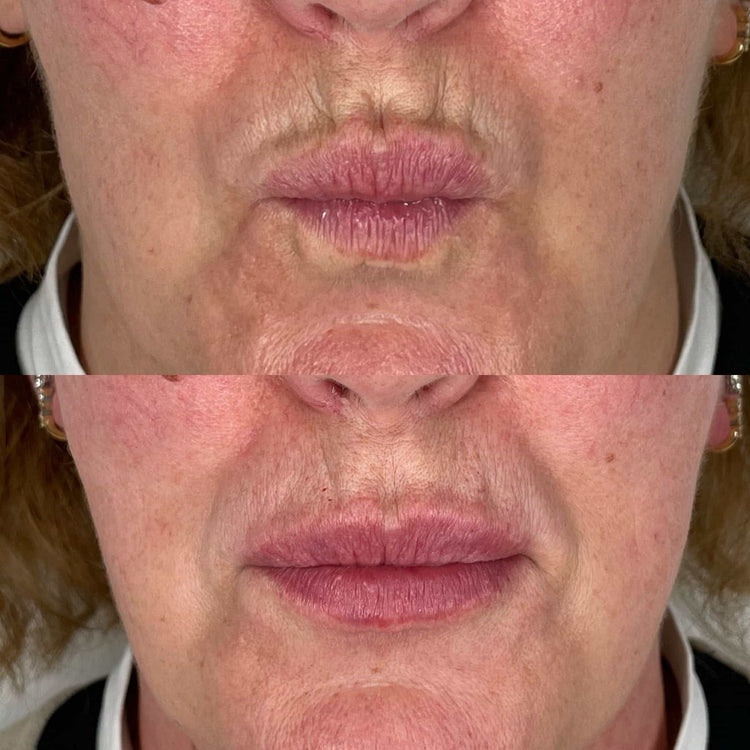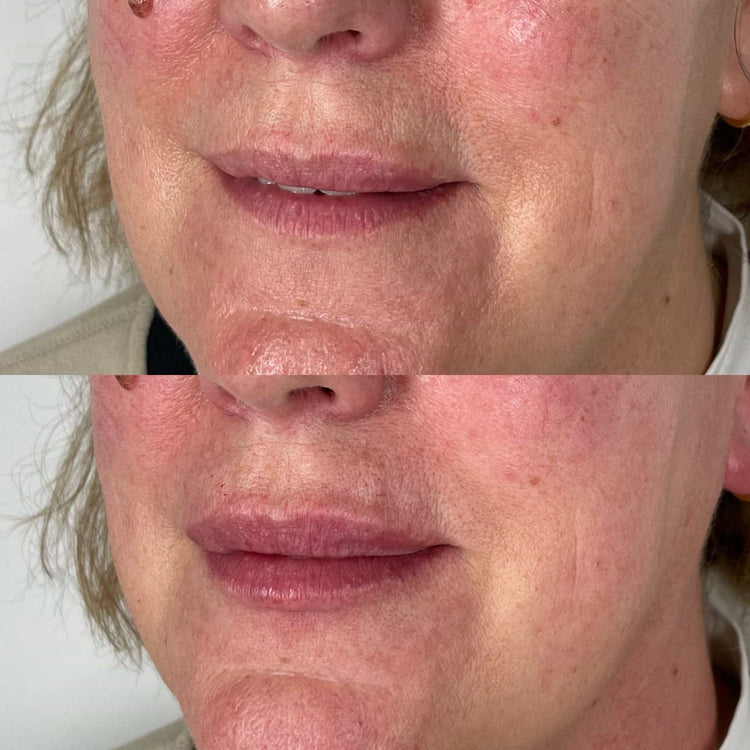Factors Influencing Optimal Age
Determining the optimal age for dermal filler treatment is a nuanced process influenced by a variety of factors. Individual skin characteristics, lifestyle choices, and personal goals all play a role in deciding when aesthetic interventions might be most beneficial. Understanding these influences is crucial for patients seeking to achieve natural-looking, long-lasting results.
Skin Elasticity and Collagen Levels
Skin elasticity and collagen levels naturally decline with age, starting as early as our twenties. This process is accelerated by factors like sun exposure, smoking, and stress. While genetics play a role in individual aging patterns, understanding these influences can help individuals make informed decisions about dermal filler treatment.
Age itself isn’t the sole determining factor. Some individuals may experience signs of skin laxity and volume loss earlier than others, while others maintain youthful fullness for longer. It’s important to consult with a qualified practitioner who can assess individual skin type, concerns, and desired outcomes to determine the most suitable age for treatment.
Individual Skin Concerns
Determining the optimal age for dermal filler treatment is a nuanced process influenced by a variety of factors. Individual skin characteristics, lifestyle choices, and personal goals all play a role in deciding when aesthetic interventions might be most beneficial. Understanding these influences is crucial for patients seeking to achieve natural-looking, long-lasting results.
Skin elasticity and collagen levels naturally decline with age, starting as early as our twenties. This process is accelerated by factors like sun exposure, smoking, and stress. While genetics play a role in individual aging patterns, understanding these influences can help individuals make informed decisions about dermal filler treatment.
Age itself isn’t the sole determining factor. Some individuals may experience signs of skin laxity and volume loss earlier than others, while others maintain youthful fullness for longer. It’s important to consult with a qualified practitioner who can assess individual skin type, concerns, and desired outcomes to determine the most suitable age for treatment.
Lifestyle Factors
Determining the optimal age for dermal filler treatment is a nuanced process influenced by various factors. Individual skin characteristics, lifestyle choices, and personal goals all contribute to deciding when aesthetic interventions might be most beneficial.
Skin elasticity and collagen levels naturally decline with age, starting as early as our twenties. This process can be accelerated by factors like sun exposure, smoking, and stress. While genetics play a role in individual aging patterns, understanding these influences helps individuals make informed decisions about dermal filler treatment.
Age itself isn’t the sole determining factor. Some individuals may experience signs of skin laxity and volume loss earlier than others, while others maintain youthful fullness for longer. It’s crucial to consult with a qualified practitioner who can assess individual skin type, concerns, and desired outcomes to determine the most suitable age for treatment.
Commonly Targeted Areas
Commonly targeted areas for dermal fillers include the face, lips, cheeks, under-eye area, jawline, and forehead. These areas are chosen because they are susceptible to age-related volume loss, wrinkles, and sagging.

Nasolabial Folds
Commonly targeted areas for dermal fillers include the face, lips, cheeks, under-eye area, jawline, and forehead. These areas are chosen because they are susceptible to age-related volume loss, wrinkles, and sagging.
Nasolabial folds, which are creases that run from the bottom of the nose to the corners of the mouth, are a particularly popular target for dermal fillers.
Lips
Commonly targeted areas for dermal fillers include the face, lips, cheeks, under-eye area, jawline, and forehead. These areas are susceptible to age-related volume loss, wrinkles, and sagging.
Nasolabial folds, which are creases that run from the bottom of the nose to the corners of the mouth, are a particularly popular target for dermal fillers.
Cheeks
Commonly targeted areas for dermal fillers include the face, lips, cheeks, under-eye area, jawline, and forehead. These areas are susceptible to age-related volume loss, wrinkles, and sagging.
- Cheeks
- Lips
- Under-eye area
- Jawline
- Forehead
Nasolabial folds, which are creases that run from the bottom of the nose to the corners of the mouth, are a particularly popular target for dermal fillers.
Under-Eye Hollows
Commonly targeted areas for dermal fillers include the face, lips, cheeks, under-eye area, jawline, and forehead. These areas are susceptible to age-related volume loss, wrinkles, and sagging.
Nasolabial folds, which are creases that run from the bottom of the nose to the corners of the mouth, are a particularly popular target for dermal fillers.
Under-eye hollows are a common concern as we age, contributing to a tired or aged appearance. Fillers can effectively restore volume to this area, minimizing the appearance of dark circles and creating a more youthful, refreshed look.
Types of Dermal Fillers Suitable for Younger Adults
Younger adults may explore dermal fillers to address early signs of aging and enhance their natural features. Popular choices for this demographic include hyaluronic acid-based fillers, known for their versatility and ability to subtly improve areas like lips, cheeks, and under-eye contours.
Hyaluronic Acid Fillers
Younger adults may explore dermal fillers to address early signs of aging and enhance their natural features. Popular choices for this demographic include hyaluronic acid-based fillers, known for their versatility and ability to subtly improve areas like lips, cheeks, and under-eye contours.
Hyaluronic acid is a naturally occurring substance in the body that helps maintain skin hydration and plumpness. Dermal fillers containing hyaluronic acid attract and hold water molecules, effectively adding volume and smoothing out wrinkles.
These fillers are generally well-tolerated and offer temporary results, typically lasting 6 to 18 months, which allows for gradual adjustments and customization based on individual preferences.
Poly-L-Lactic Acid (PLLA) Fillers
Younger adults may explore dermal fillers to address early signs of aging and enhance their natural features. Popular choices for this demographic include hyaluronic acid-based fillers, known for their versatility and ability to subtly improve areas like lips, cheeks, and under-eye contours.
Hyaluronic acid is a naturally occurring substance in the body that helps maintain skin hydration and plumpness. Dermal fillers containing hyaluronic acid attract and hold water molecules, effectively adding volume and smoothing out wrinkles.
These fillers are generally well-tolerated and offer temporary results, typically lasting 6 to 18 months, which allows for gradual adjustments and customization based on individual preferences.
Poly-L-Lactic Acid (PLLA) fillers are another option suitable for younger adults. Unlike hyaluronic acid fillers that provide immediate volume enhancement, PLLA fillers stimulate collagen production over time, gradually improving skin texture and firmness.
- Hyaluronic acid
- Poly-L-Lactic Acid (PLLA)
Potential Risks and Considerations
Before considering dermal fillers, it’s important to be aware of potential risks and considerations. These include temporary side effects like swelling, bruising, and redness at the injection site, as well as the possibility of allergic reactions. Long-term effects can include filler migration, changes in facial symmetry, or the formation of lumps or bumps.
Temporary Side Effects
Before considering dermal fillers, it’s important to be aware of potential risks and considerations. These include temporary side effects like swelling, bruising, and redness at the injection site, as well as the possibility of allergic reactions. Long-term effects can include filler migration, changes in facial symmetry, or the formation of lumps or bumps.
It’s crucial to consult with a qualified and experienced practitioner who can assess your individual needs and medical history, ensuring you make an informed decision about dermal filler treatment.
Allergic Reactions
Before considering dermal fillers, it’s important to be aware of potential risks and considerations. These include temporary side effects like swelling, bruising, and redness at the injection site, as well as the possibility of allergic reactions.
- Allergic Reactions: Some individuals may experience allergic reactions to the components of dermal fillers. This can range from mild symptoms like itching or hives to more severe reactions such as difficulty breathing.
- Infection: As with any medical procedure, there is a risk of infection at the injection site. It’s important to follow proper aftercare instructions to minimize this risk.
- Filler Migration: Dermal fillers can sometimes migrate from their intended location, resulting in an unnatural appearance.
- Lumps or Bumps: In some cases, lumps or bumps may form at the injection site, which may be temporary or permanent.
It’s crucial to consult with a qualified and experienced practitioner who can assess your individual needs and medical history, ensuring you make an informed decision about dermal filler treatment.
Long-Term Complications

Before considering dermal fillers, it’s important to be aware of potential risks and considerations. These include temporary side effects like swelling, bruising, and redness at the injection site, as well as the possibility of allergic reactions.
Long-term effects can include filler migration, changes in facial symmetry, or the formation of lumps or bumps.
It’s crucial to consult with a qualified and experienced practitioner who can assess your individual needs and medical history, ensuring you make an informed decision about dermal filler treatment.
Consultation with a Qualified Practitioner
Determining the optimal age for dermal filler treatment is a nuanced process influenced by a variety of factors. Individual skin characteristics, lifestyle choices, and personal goals all play a role in deciding when aesthetic interventions might be most beneficial. Understanding these influences is crucial for patients seeking to achieve natural-looking, long-lasting results.
Importance of Professional Assessment
Consultation with a qualified practitioner is essential before considering dermal filler treatment. A thorough assessment by a skilled medical professional will help determine the most suitable age for treatment based on individual skin characteristics, lifestyle factors, and desired outcomes.
The practitioner can evaluate your skin type, elasticity, volume loss, and any specific concerns you may have. They will also discuss potential risks and benefits, ensuring you make an informed decision aligned with your aesthetic goals and overall health.
Choosing a Reputable Clinic
Consultation with a qualified practitioner is essential before considering dermal filler treatment. A thorough assessment by a skilled medical professional will help determine the most suitable age for treatment based on individual skin characteristics, lifestyle factors, and desired outcomes.
The practitioner can evaluate your skin type, elasticity, volume loss, and any specific concerns you may have. They will also discuss potential risks and benefits, ensuring you make an informed decision aligned with your aesthetic goals and overall health.
Choosing a reputable clinic is equally important. Look for clinics that prioritize patient safety and well-being, employing experienced practitioners who are certified and qualified in dermal filler administration.
Ensure the clinic has a good reputation and positive reviews from previous patients. Ask about their sterilization protocols and aftercare procedures to ensure you receive safe and effective treatment.
- Why Doesn’t My Lip Filler Last - November 14, 2025
- What Is The Difference Between THC-Infused Drinks And THC Edibles? - November 12, 2025
- What Are The Best CBD Infused Gummies For Chronic Pain - November 9, 2025
